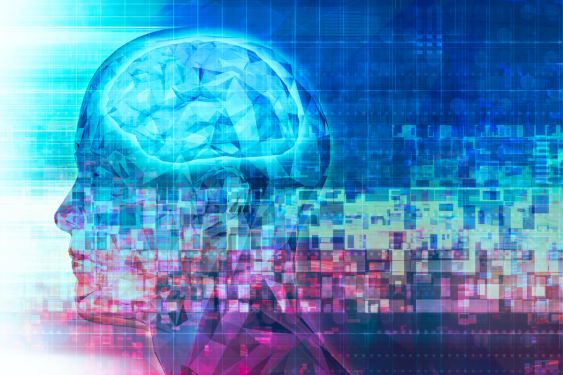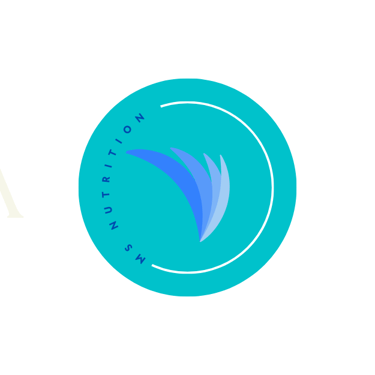Upgrade Your Brain: Nutritional and Lifestyle Interventions to Boost Focus, Mood, and Memory
Discover seven science-backed strategies to support brain health holistically
HEALTH, WELLNESS, BRAIN HEALTH, NUTRITION
Marianne Sheena
5/3/20253 min read


Upgrade Your Brain: Nutritional and Lifestyle Interventions to Boost Focus, Mood, and Memory
The human brain is a highly sophisticated organ reliant on a delicate interplay of biochemical, structural, and environmental factors to function optimally. As a nutritional therapist, I frequently work with individuals experiencing symptoms such as brain fog, poor memory, low mood, and mental fatigue. These issues are often signs of deeper imbalances in sleep, diet, stress resilience, and inflammation within the body.
Fortunately, the latest research shows that there is much we can do to protect and even enhance brain function through targeted lifestyle and nutritional interventions. Here are seven evidence-based strategies to support cognitive performance and long-term brain health.
1. Prioritise Deep, Restorative Sleep
Sleep is essential for brain health—not just to rest the body, but to actively repair the brain. During deep sleep, the brain activates its glymphatic system, a waste clearance network that removes toxins including beta-amyloid and tau proteins. These proteins are associated with neurodegenerative conditions like Alzheimer’s disease. While their exact role is still being studied, it’s clear that poor sleep impairs the brain's ability to clear them effectively.
Sleep also plays a crucial role in consolidating memories, regulating mood, and maintaining optimal cognitive function.
Recommendations:
Aim for 7.5 to 9 hours of high-quality sleep each night.
Establish consistent sleep and wake times, even on weekends.
Reduce evening exposure to blue light from screens to support melatonin production.
Consider nutrients like magnesium bisglycinate or L-theanine, which can support relaxation and sleep quality when used appropriately.
2. Eat a Brain-Supportive Diet
Your brain is metabolically demanding—it consumes around 20% of the body's energy. A nutrient-dense, anti-inflammatory diet is foundational for maintaining optimal cognitive performance.
Key nutrients and food groups include:
Omega-3 fatty acids (EPA and DHA): Crucial for healthy brain cell membranes and reducing inflammation.
Polyphenols and antioxidants: Found in colourful vegetables, berries, and green tea; these protect the brain from oxidative stress.
B vitamins (B6, B9, B12): Support energy metabolism and reduce homocysteine, a marker linked to cognitive decline.
Stable blood sugar levels: Blood sugar fluctuations can impair memory, focus, and mood. Focus on balanced meals with good-quality protein, healthy fats, and fibre.
Limit: Ultra-processed foods, refined sugars, and seed oils that may promote inflammation.
3. Use Targeted Nutraceuticals (Under Guidance)
While diet should always come first, certain supplements have shown particular promise in supporting cognitive function:
Magnesium L-threonate: A form of magnesium that can cross the blood-brain barrier and may enhance learning and memory.
Lion’s Mane mushroom: Contains compounds that support Nerve Growth Factor (NGF), which may aid memory and nerve regeneration.
Phosphatidylserine and phosphatidylcholine: Support brain cell structure and communication.
Omega-3s (especially DHA): Help protect neurons and regulate brain inflammation.
L-theanine: Found naturally in green tea, promotes calm focus and supports alpha brainwave activity.
Always seek personalised advice before beginning supplementation.
4. Move to Stimulate Brain Plasticity
Exercise doesn’t just benefit the body—it’s critical for the brain. Physical movement increases levels of Brain-Derived Neurotrophic Factor (BDNF), a protein that supports the growth of new brain cells and strengthens neural connections.
What’s most effective:
Aerobic exercise and HIIT: Boost BDNF levels and support cognitive clarity.
Mind-body practices: Yoga and tai chi support balance, coordination, and emotional regulation.
Cross-lateral movements: Activities involving both sides of the body can improve communication between brain hemispheres.
5. Manage Stress to Protect the Brain
Chronic stress floods the brain with cortisol, which over time can damage the hippocampus—the area responsible for memory and learning. Persistent high cortisol also disrupts sleep and increases inflammation, further affecting mental clarity.
Evidence-backed techniques include:
Creating daily structure to reduce cognitive overload.
Practising breathwork, meditation, or mindfulness to engage the parasympathetic nervous system.
Using gratitude journaling and vagal tone exercises (e.g. cold exposure, singing) to enhance emotional resilience.
6. Challenge the Brain with Novelty
Neuroplasticity—the brain’s ability to rewire and adapt—relies on regular stimulation. Keeping the brain engaged with new challenges can build cognitive reserve, a protective factor against cognitive decline.
Activities to support cognitive agility:
Learning new skills (e.g. a language, instrument, or craft)
Solving puzzles or playing strategy games
Creative expression like writing, painting, or improvisation
These activities support the development of new neural pathways and improve working memory, focus, and adaptability.
7. Stay Socially Connected
Human connection is more than emotional—it’s biological. Social interaction stimulates multiple regions of the brain and has been linked to better memory, slower cognitive decline, and improved mood.
Practical suggestions:
Join group activities, workshops, or volunteering programmes.
Make time for meaningful, in-person conversations.
Limit excessive digital interaction in favour of real-world connection.
Final Thoughts
Your brain thrives when it is supported nutritionally, challenged mentally, moved physically, and nurtured emotionally. These seven pillars provide a practical and scientifically grounded framework to enhance cognitive health—whether you're looking to prevent decline, manage symptoms, or simply perform at your best.
If you're navigating cognitive symptoms or seeking a personalised strategy for brain optimisation, I’d be delighted to support you.







